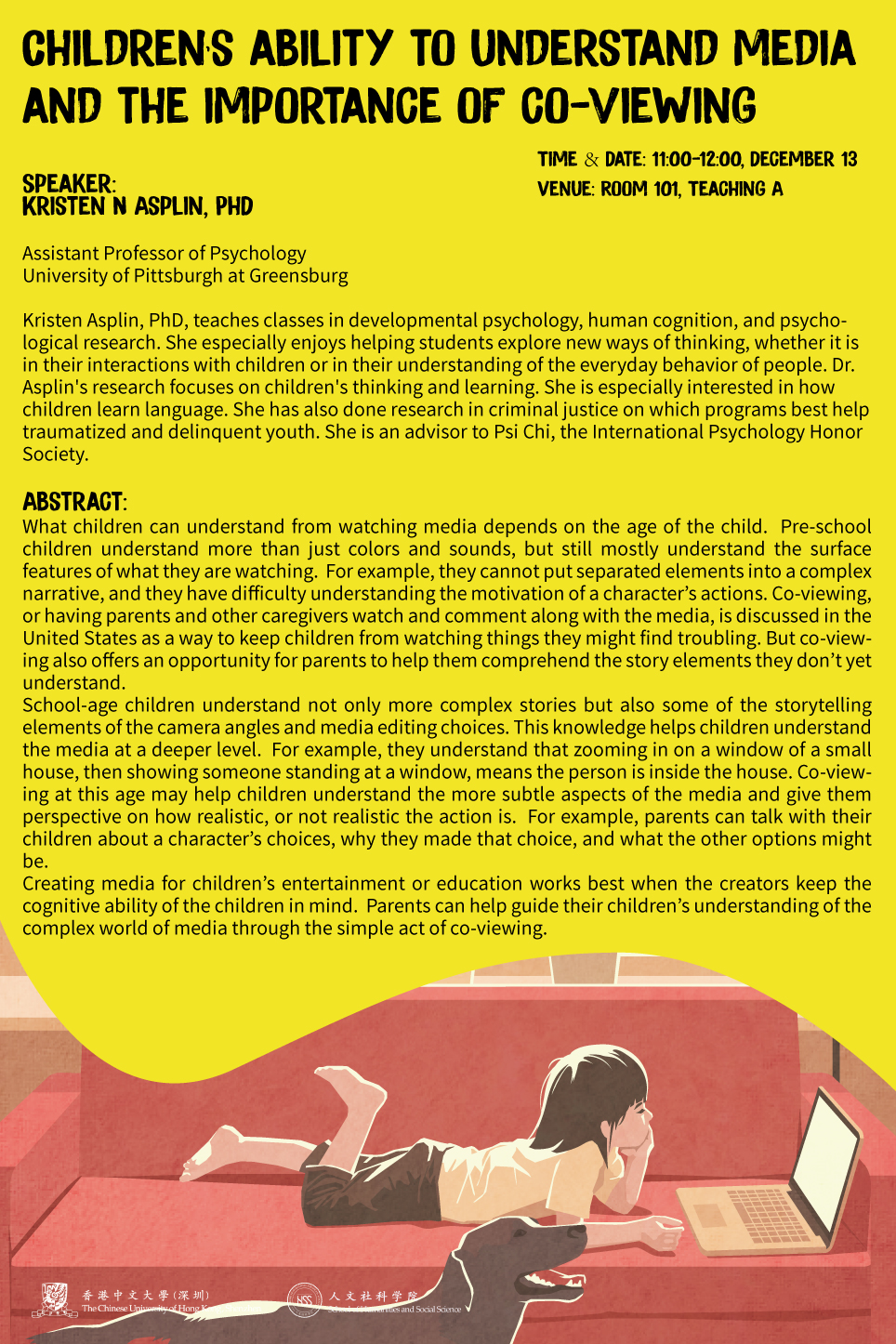Children's ability to understand media and the importance of co-viewing
Topic:Children's ability to understand media and the importance of co-viewing
Date:December 13th, 2019, Friday
Time: 11:00 am-12:00 am
Venue: Room 101, Teaching A
Speaker:
Kristen N Asplin, PhD
Assistant Professor of Psychology
University of Pittsburgh at Greensburg
About the Speaker:
Kristen Asplin, PhD, teaches classes in developmental psychology, human cognition, and psychological research. She especially enjoys helping students explore new ways of thinking, whether it is in their interactions with children or in their understanding of the everyday behavior of people. Dr. Asplin's research focuses on children's thinking and learning. She is especially interested in how children learn language. She has also done research in criminal justice on which programs best help traumatized and delinquent youth. She is an advisor to Psi Chi, the International Psychology Honor Society.

- Prev
- Next




